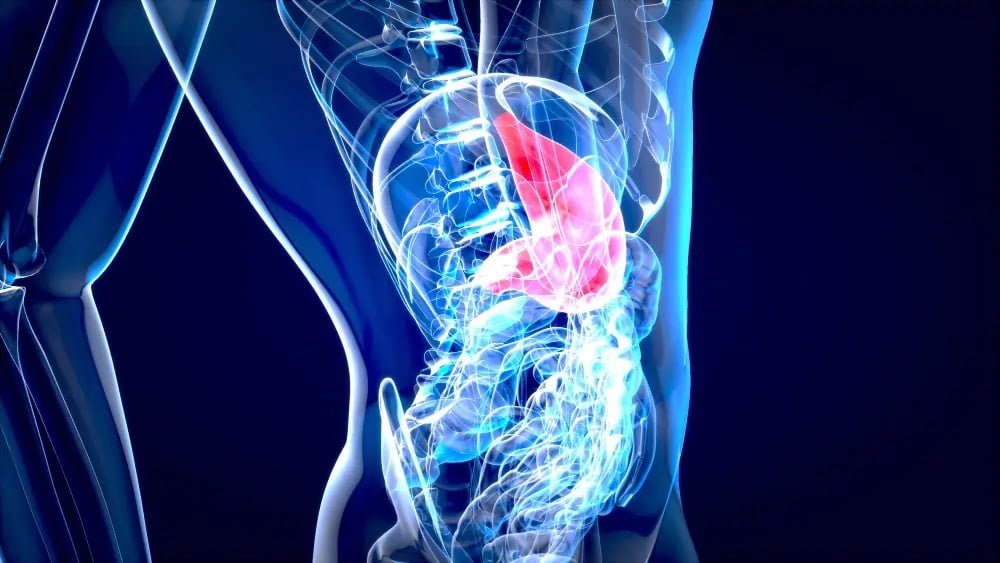Introduction
The heart, the mighty engine that keeps us alive, is more than just a symbol of love and affection. This vital organ works tirelessly, pumping fresh blood and oxygen to every inch of our body. However, we often take its tireless
devotion for granted, ignoring the subtle warnings it sends us. In this article, we will delve into the world of cardiac symptoms and uncover the hidden dangers of disregarding them.
Common Cardiac Symptoms
1. Chest Pain: One of the most common and concerning indications of cardiac distress is chest pain. This
discomfort can range from a dull ache to a sharp stabbing pain, often radiating to the arm, shoulder, jaw, or back.
2. Shortness of Breath: Feeling breathless, even after minimal exertion, may be an early warning sign of underlying heart issues. If you find yourself catching your breath frequently or struggling to take in enough air, it’s time to pay attention.
3. Fatigue: Experiencing persistent fatigue, feeling excessively tired, or lacking energy can all be linked to cardiovascular health problems. Don’t dismiss your exhaustion as simply a result of a busy lifestyle; it might be your heart’s way of signaling trouble.
Why Ignoring Cardiac Symptoms Is Dangerous
Delaying or dismissing these symptoms can have severe consequences. Ignoring cardiac symptoms may lead to an incorrect or late diagnosis, preventing rapid intervention for potential heart issues. Timely recognition and treatment
are crucial in mitigating risks related to these symptoms.
Furthermore, allowing cardiac symptoms to persist without medical attention can pave the way for the progression of health issues. What might have initially been a minor ailment can evolve into something much more severe.
Complications of Ignoring Cardiac Symptoms
When cardiac symptoms go unaddressed, the risks multiply exponentially. Here are three grave complications that can arise from ignoring these essential signs:
1. Heart Attack: The longer cardiac symptoms are ignored, the higher the possibility of experiencing a heart attack. A heart attack occurs when the heart’s blood supply is significantly blocked, leading to tissue damage or death.
2. Heart Failure: Ignoring cardiac symptoms can eventually strain the heart to the point of failure. Heart failure
is a progressive condition where the heart becomes unable to efficiently pump blood, resulting in a myriad of symptoms affecting various body organs.
3. Stroke: Cardiac symptoms like chest pain and shortness of breath can be indicative of an underlying heart condition that may increase the risk of stroke. Ignoring these symptoms can lead to the formation of dangerous blood clots that can trigger a stroke, leading to potential long-term disability or death.
The Importance of Early Detection and Treatment
Realizing the significance of early detection and prompt medical intervention is crucial to combating cardiac symptoms. Here are some essential steps to take:
1. Recognizing the Symptoms: Educate yourself about cardiac symptoms and be vigilant about any changes or unusual sensations in your body.
2. Seeking Medical Attention: If you experience persistent or severe symptoms, don’t hesitate to consult a healthcare professional. They can provide an accurate diagnosis and recommend appropriate treatment.
3. Diagnostic Tests: Various tests, such as electrocardiograms (ECG), stress tests, and echocardiograms, can help identify underlying cardiac problems and guide appropriate treatment.
Treatment Options
Medications: Depending on the diagnosed condition, medications such as beta-blockers, ACE inhibitors, and diuretics may be prescribed to manage cardiac symptoms and improve heart function.
Lifestyle Modifications: Making lifestyle changes is central to managing cardiac symptoms. Adopting a heart-healthy diet, engaging in regular exercise, quitting smoking, and managing stress can all contribute to cardiovascular well-being.
Surgical Procedures: In severe cases, surgical interventions such as angioplasty, stent placement, or even bypass surgery may be necessary to restore blood flow and improve heart function.
Prevention is Key
Prevention plays a significant role in maintaining a healthy heart. Taking proactive steps to safeguard your cardiovascular health can mitigate the risk of developing cardiac symptoms. Here are some preventive measures:
- Healthy Diet and Exercise: Opt for a balanced diet rich in fruits, vegetables, whole grains, and lean proteins. Regular exercise, such as brisk walking or swimming, can help strengthen the heart and improve overall endurance.
- Regular Check-ups: Don’t wait for symptoms to emerge; schedule routine check-ups with your healthcare provider to assess your heart health and address any concerns.
- Stress Management: Find effective ways to manage stress, as chronic stress can negatively impact heart health.
Engage in relaxation techniques, practice mindfulness, or pursue hobbies
that bring you joy.
Conclusion
The heart is an extraordinary organ that should not be taken for granted. Ignoring cardiac symptoms can lead to dire consequences, such as heart attacks, heart failure, or strokes. By recognizing symptoms early, seeking medical attention promptly, and adopting a heart-healthy lifestyle, we can protect our hearts and prevent potential catastrophes.
FAQs
1. How can I differentiate between normal chest pain and heart-related chest pain?
Normal chest pain often feels sharp and localized, whereas heart-related chest pain is typically described as pressure or tightness, sometimes radiating to other parts of the body.
2. Are cardiac symptoms more common in men or women?
While cardiac symptoms can affect both men and women, women often experience atypical symptoms like nausea, back pain, or jaw pain instead of the classic chest pain seen in men.
3. I’m young and healthy; should I still worry about cardiac symptoms?
Regardless of age and overall health, everyone should pay attention to possible cardiac symptoms. Heart problems can affect individuals of any age, and early detection is crucial for effective treatment.
4. Can stress alone cause cardiac symptoms?
Stress can contribute to cardiac symptoms and may trigger existing heart conditions. Managing stress through relaxation techniques and lifestyle changes can significantly improve heart health.
5. What should I do if I experience cardiac symptoms during exercise?
It’s important to stop exercising and seek medical attention if you experience cardiac symptoms during physical
activity. Ignoring symptoms during exercise can exacerbate the underlying heart condition.






 Afrikaans
Afrikaans Albanian
Albanian Amharic
Amharic Arabic
Arabic Armenian
Armenian Azerbaijani
Azerbaijani Basque
Basque Belarusian
Belarusian Bengali
Bengali Bosnian
Bosnian Bulgarian
Bulgarian Catalan
Catalan Cebuano
Cebuano Chichewa
Chichewa Chinese (Simplified)
Chinese (Simplified) Chinese (Traditional)
Chinese (Traditional) Corsican
Corsican Croatian
Croatian Czech
Czech Danish
Danish Dutch
Dutch English
English Esperanto
Esperanto Estonian
Estonian Filipino
Filipino Finnish
Finnish French
French Frisian
Frisian Galician
Galician Georgian
Georgian German
German Greek
Greek Gujarati
Gujarati Haitian Creole
Haitian Creole Hausa
Hausa Hawaiian
Hawaiian Hebrew
Hebrew Hindi
Hindi Hmong
Hmong Hungarian
Hungarian Icelandic
Icelandic Igbo
Igbo Indonesian
Indonesian Irish
Irish Italian
Italian Japanese
Japanese Javanese
Javanese Kannada
Kannada Kazakh
Kazakh Khmer
Khmer Korean
Korean Kurdish (Kurmanji)
Kurdish (Kurmanji) Kyrgyz
Kyrgyz Lao
Lao Latin
Latin Latvian
Latvian Lithuanian
Lithuanian Luxembourgish
Luxembourgish Macedonian
Macedonian Malagasy
Malagasy Malay
Malay Malayalam
Malayalam Maltese
Maltese Maori
Maori Marathi
Marathi Mongolian
Mongolian Myanmar (Burmese)
Myanmar (Burmese) Nepali
Nepali Norwegian
Norwegian Pashto
Pashto Persian
Persian Polish
Polish Portuguese
Portuguese Punjabi
Punjabi Romanian
Romanian Russian
Russian Samoan
Samoan Scottish Gaelic
Scottish Gaelic Serbian
Serbian Sesotho
Sesotho Shona
Shona Sindhi
Sindhi Sinhala
Sinhala Slovak
Slovak Slovenian
Slovenian Somali
Somali Spanish
Spanish Sundanese
Sundanese Swahili
Swahili Swedish
Swedish Tajik
Tajik Tamil
Tamil Telugu
Telugu Thai
Thai Turkish
Turkish Ukrainian
Ukrainian Urdu
Urdu Uzbek
Uzbek Vietnamese
Vietnamese Welsh
Welsh Xhosa
Xhosa Yiddish
Yiddish Yoruba
Yoruba Zulu
Zulu